Jessie Brennan Re: development: Voices, Cyanotypes and Writings from The Green Backyard (Silent Grid, 2016)
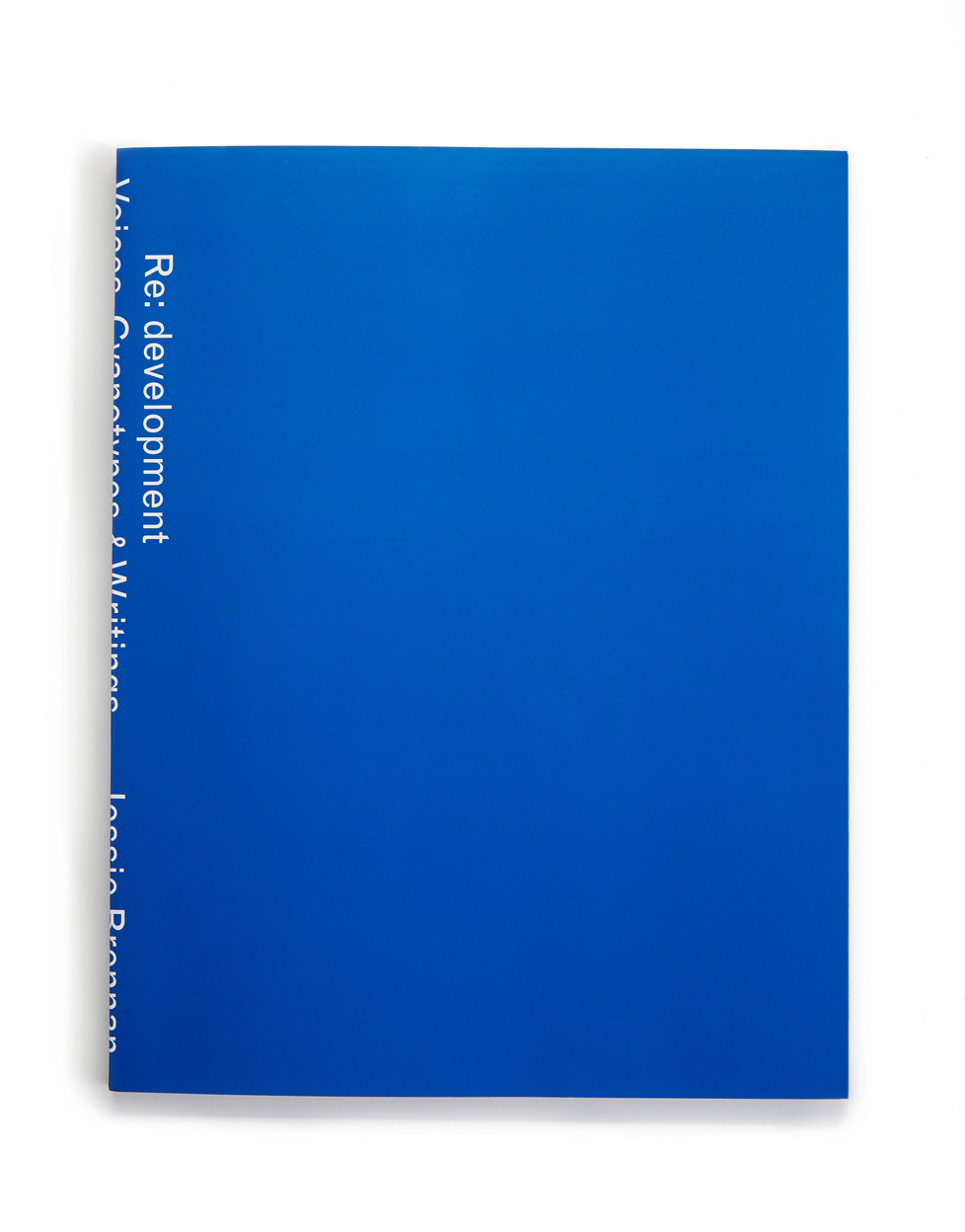
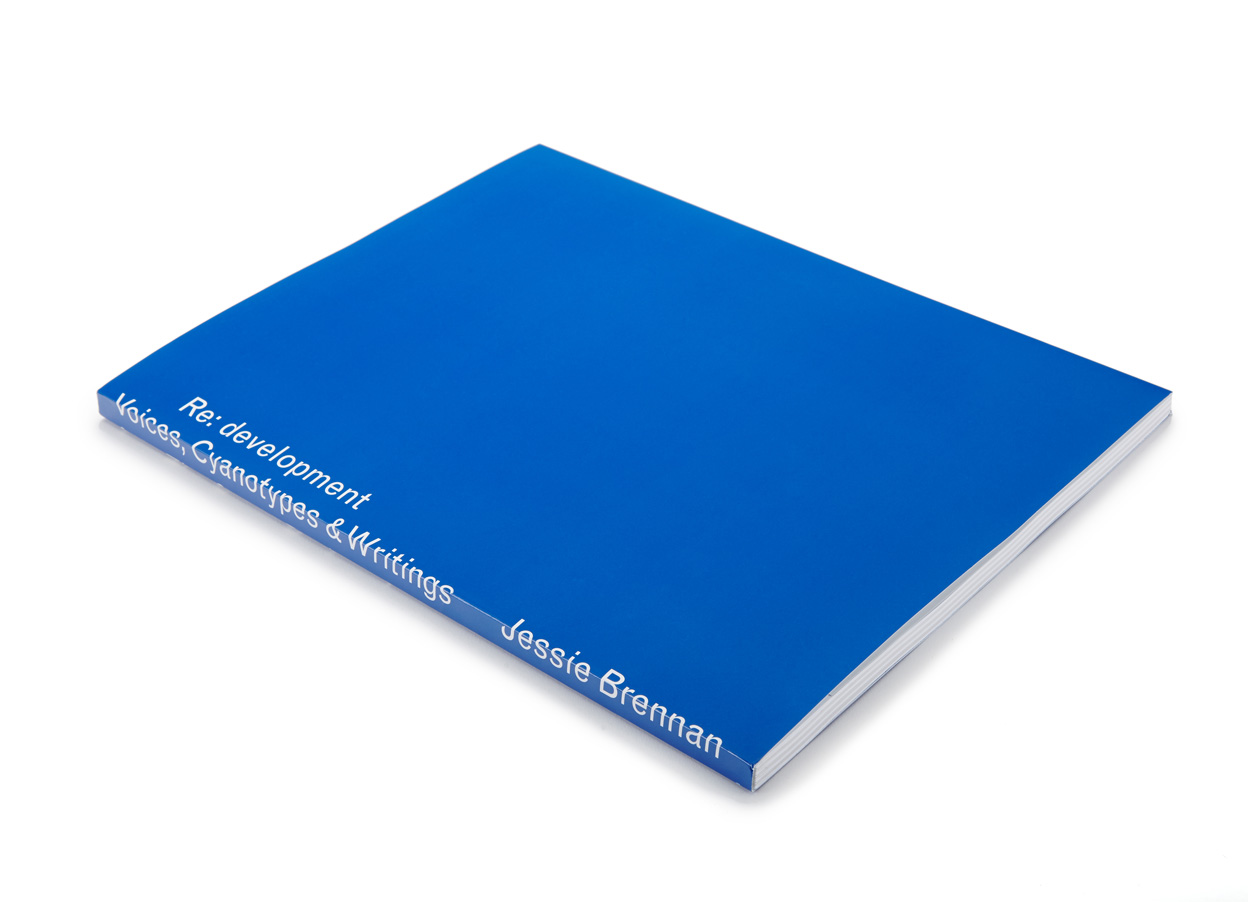
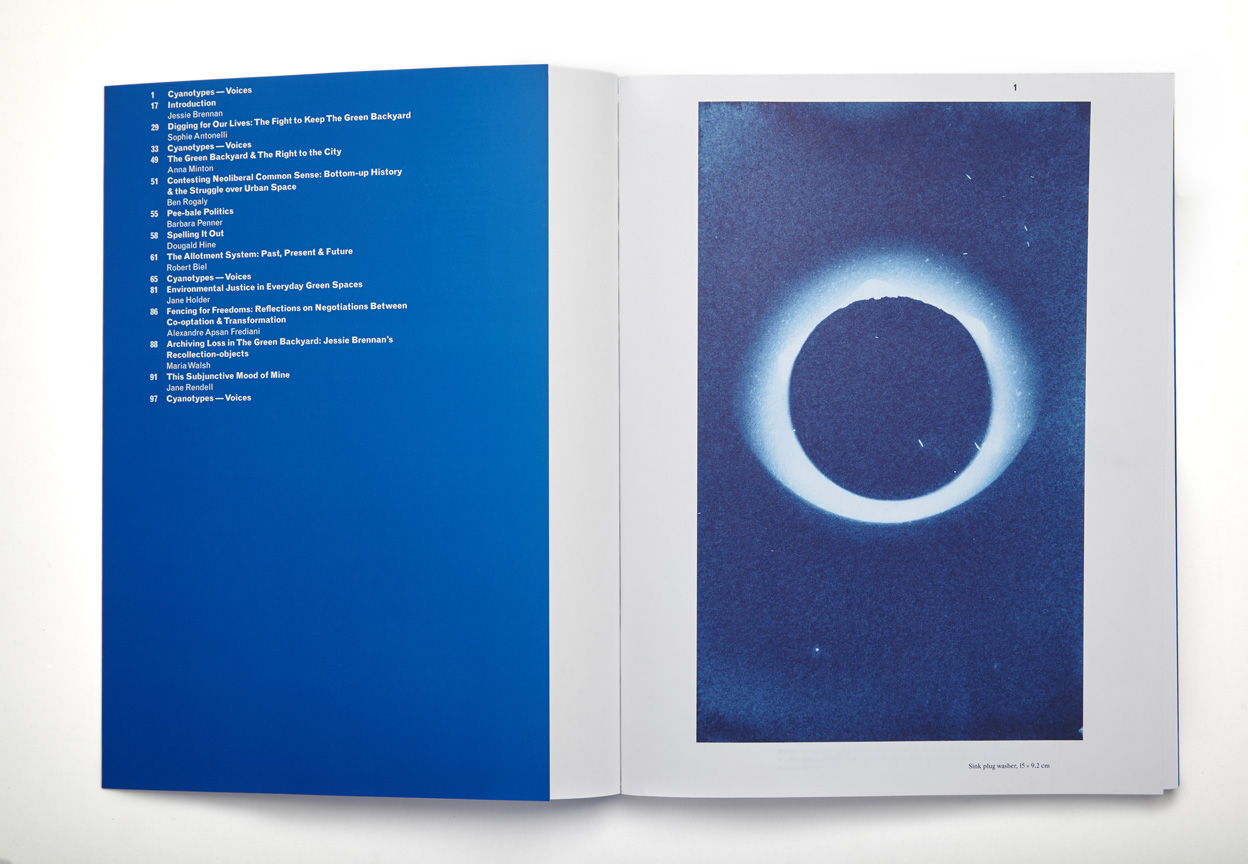
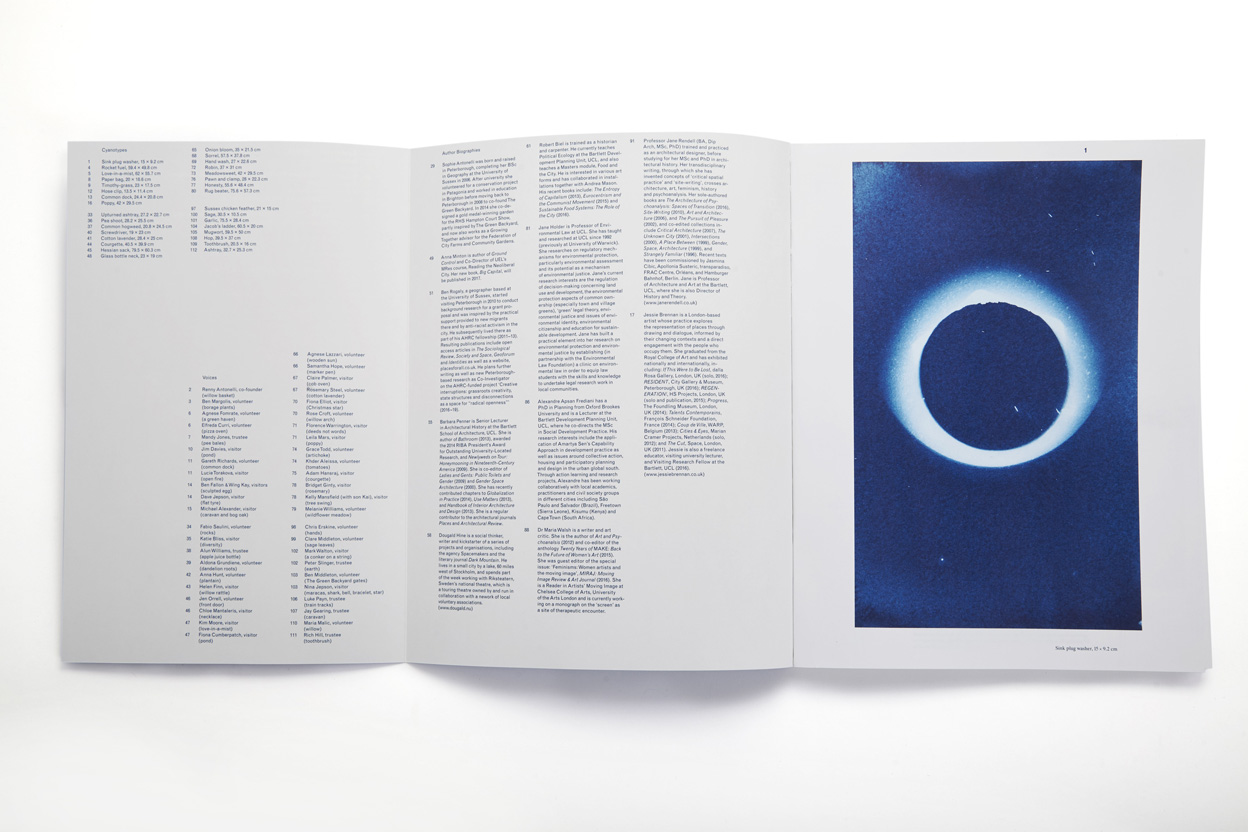

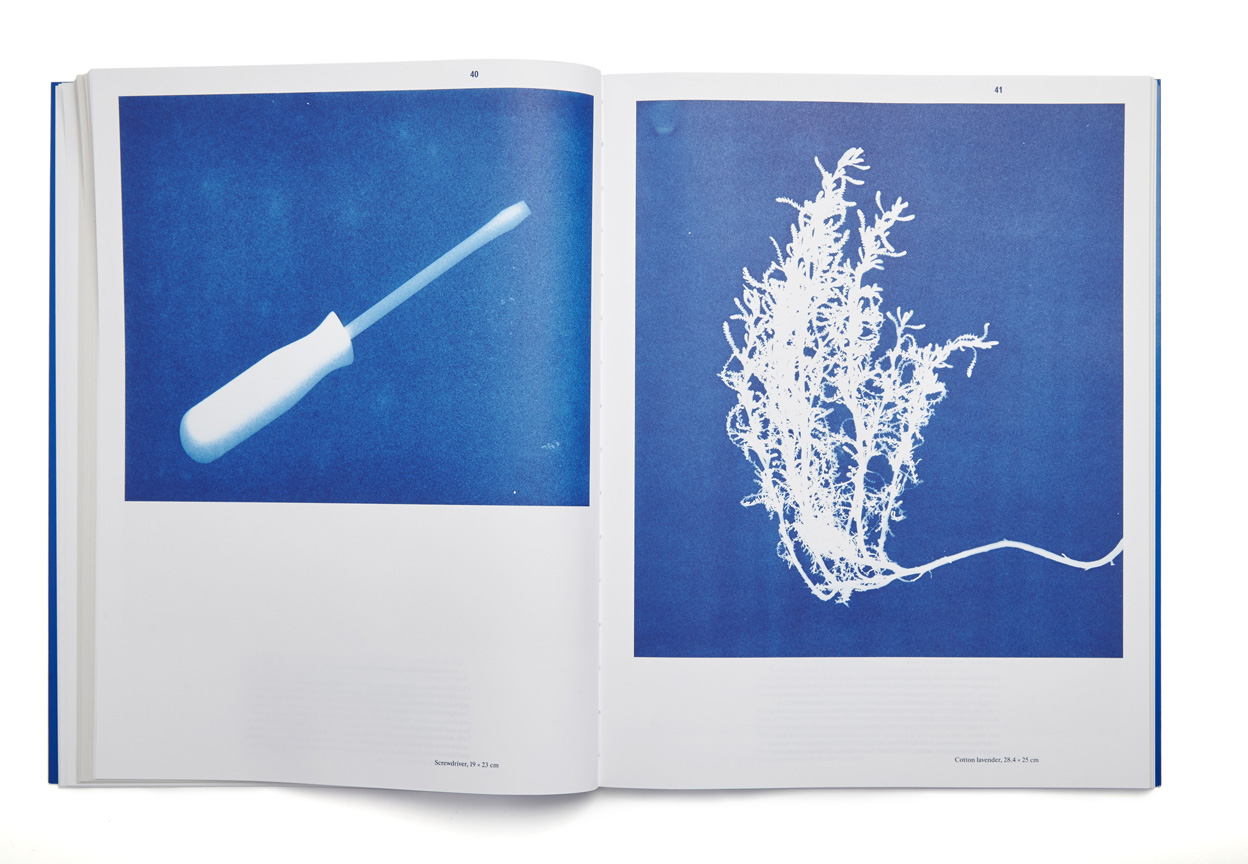
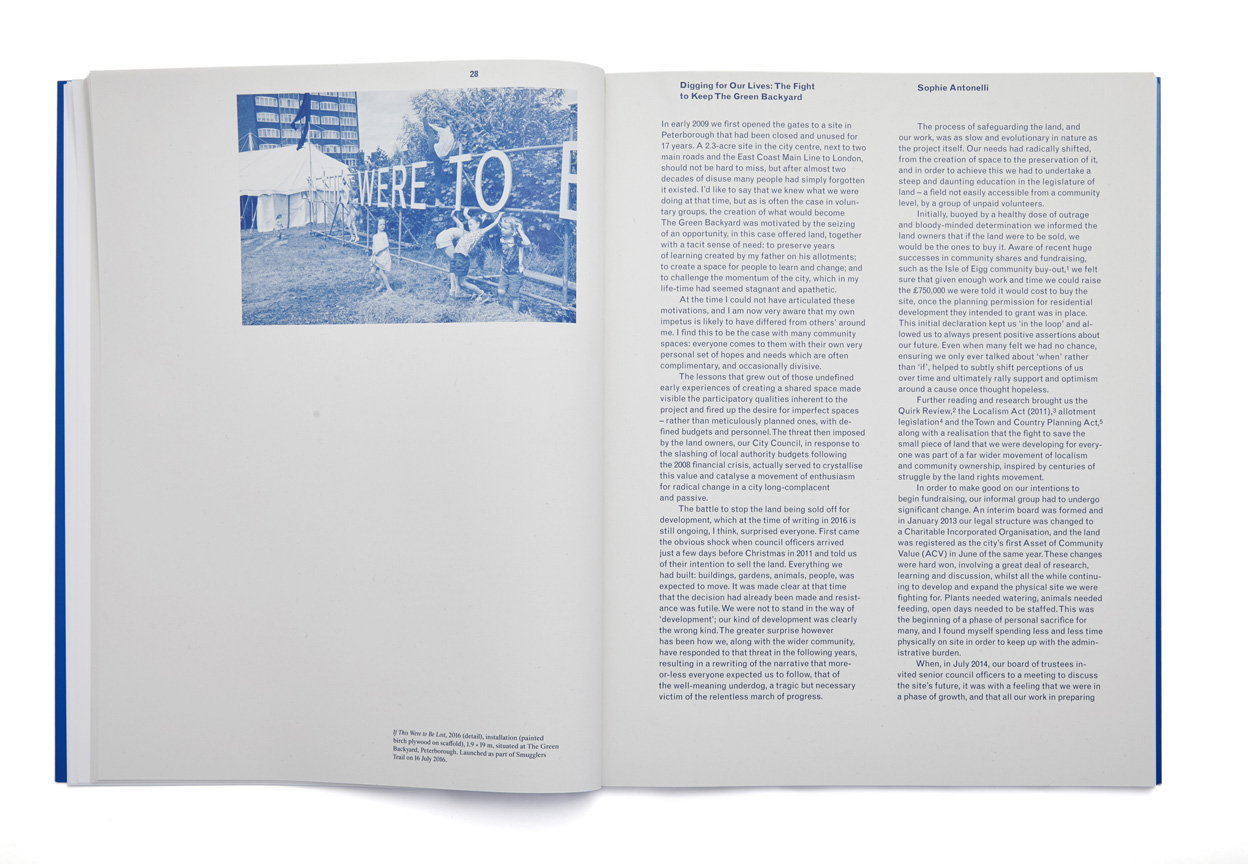
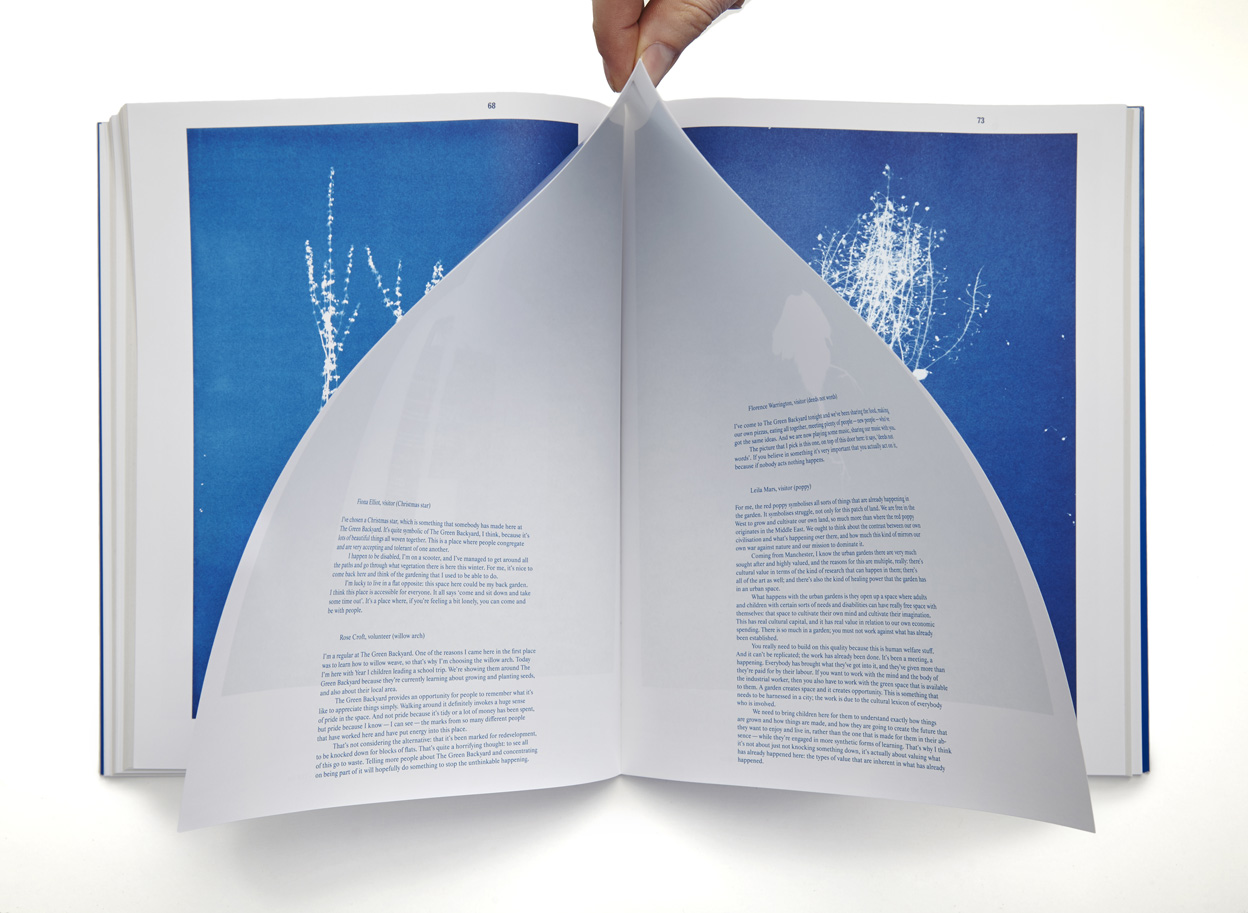
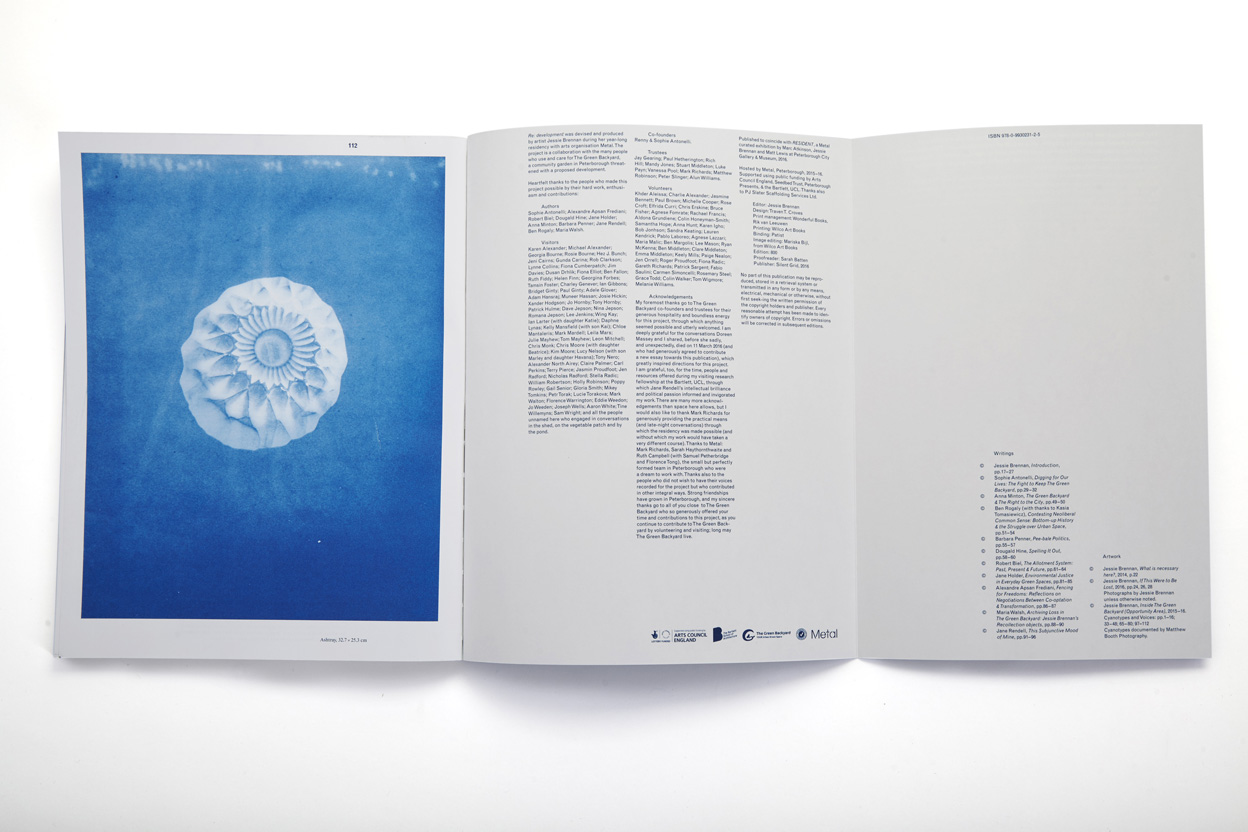
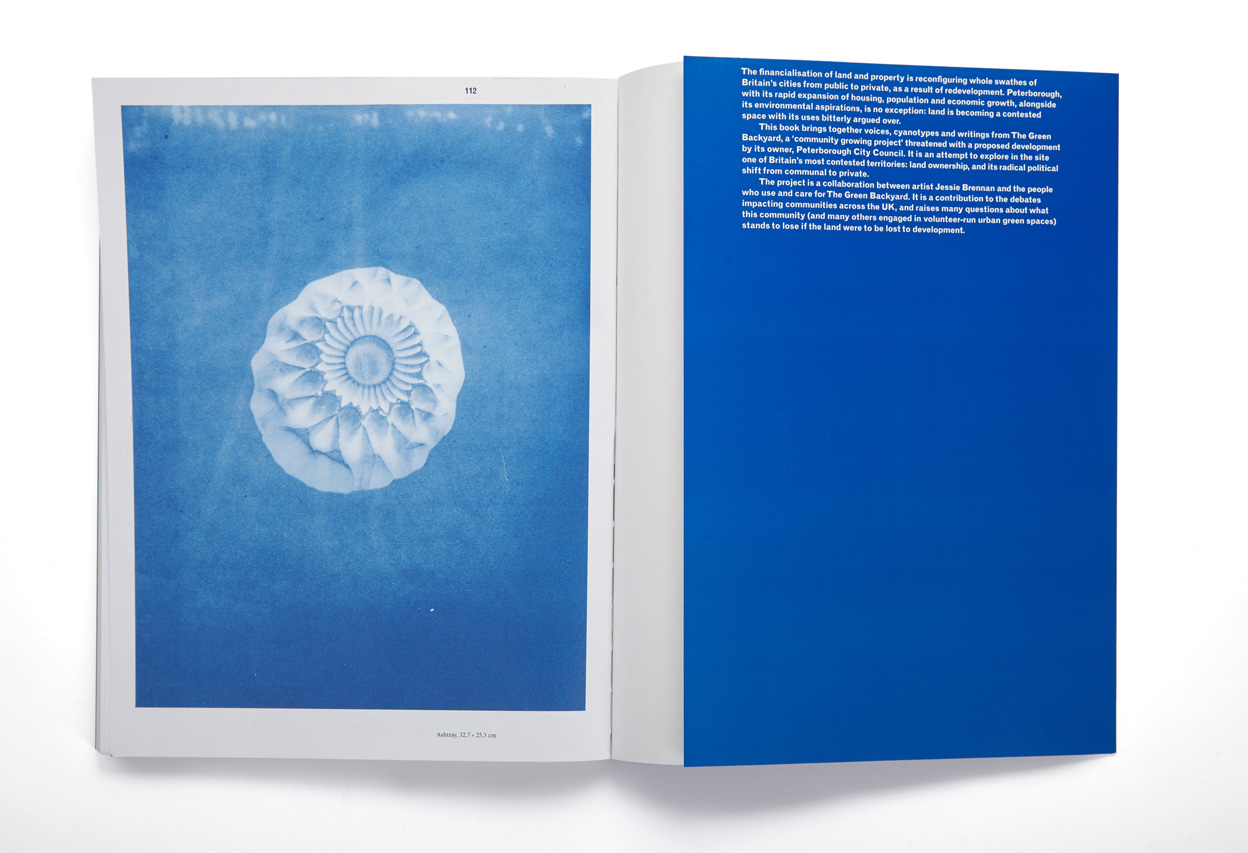
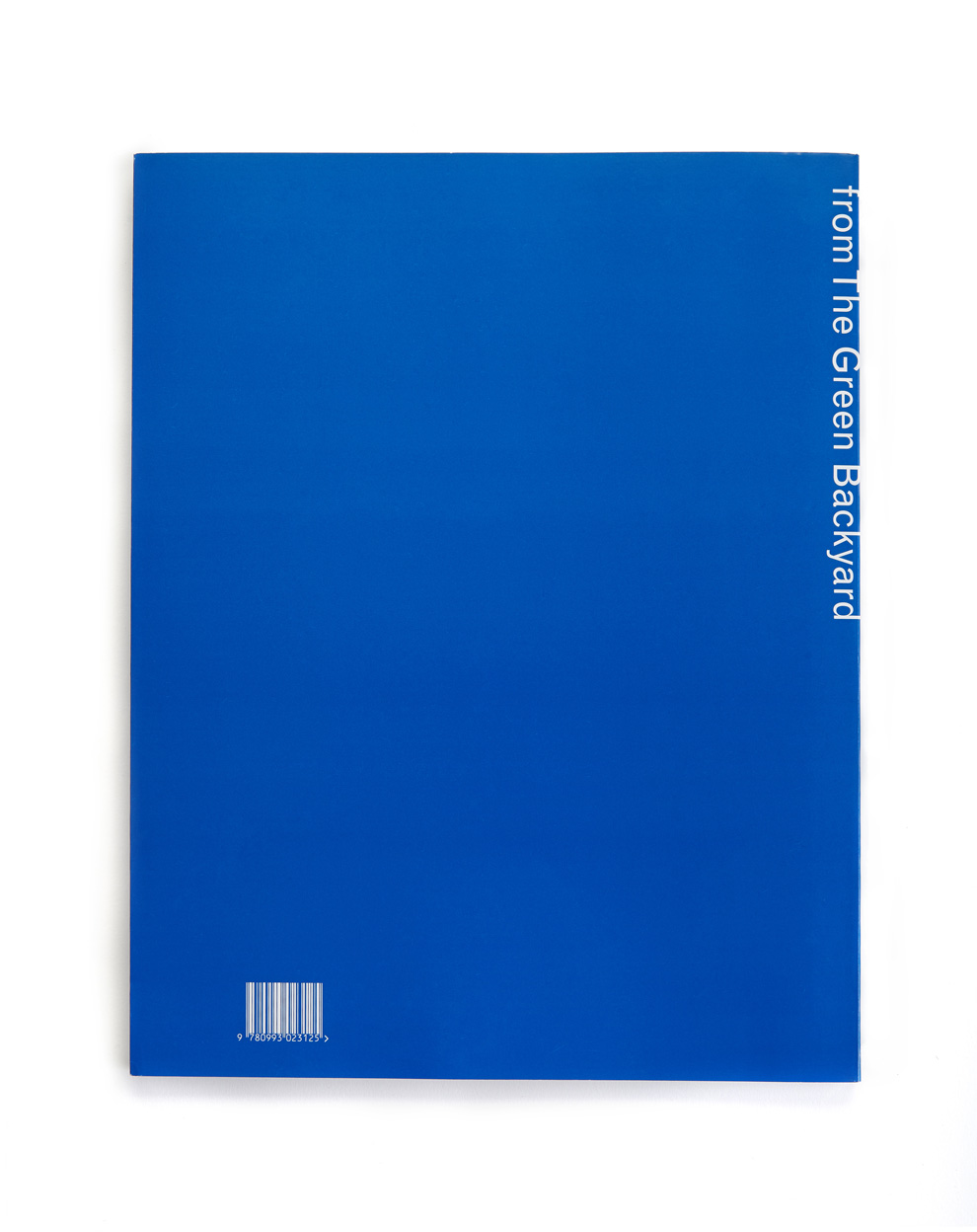
Re: development is a book that brings together voices, cyanotypes and writings from The Green Backyard following Jessie's year-long residency there. Published before the land was finally safeguarded, it questions the capitalist logic of the site’s proposed development by landowner, Peterborough City Council. The book shares the voices of The Green Backyard – of those defending their 'right to the city'.
Contributing authors include: Sophie Antonelli (activist; co-founder of The Green Backyard); Dr. Alexandre Apsan Frediani (researcher of development practice; Lecturer at the Bartlett Development Planning Unit, UCL); Dr. Robert Biel (carpenter-historian; Senior Lecturer at the Bartlett Development Planning Unit, UCL); Dougald Hine (writer and social thinker; co-founder of Dark Mountain); Prof. Jane Holder (Professor of Environmental Law, UCL); Anna Minton (writer; Co-Director of UEL’s MRes course, Reading the Neoliberal City); Dr. Barbara Penner (architectural historian; Senior Lecturer at the Bartlett School of Architecture, UCL); Prof. Jane Rendell (artist-writer; Professor of Architecture and Art, and Director of History and Theory at the Bartlett School of Architecture); Prof. Ben Rogaly (geographer; Professor of Geography, University of Sussex); and Dr. Maria Walsh (writer and art critic; Reader in Artists’ Moving Image at Chelsea College of Arts, University of the Arts London).
Read the extended review of Jessie Brennan's Re: development, by Matthew Thompson for Antipode: A Radical Journal of Geography.
“This is a unique book. […] [Brennan’s] pointedly political redeployment of the cyanotype method here turns blueprint planning on its head – an artistic device that brings to light what too often falls through the cracks between the lines drawn by planning professionals. […] Despite its charged political subject matter, there is a deeply sensory aspect to the book, evoking the hands-on quality of life in the Green Backyard, which asks to be touched and handled like a vegetable freshly pulled from the earth. […]
This collection is the most effective articulation I’ve yet come across that captures these tensions; that expresses in outward language the difficulty of balancing the demands of inward and upward in building social and solidarity economies. […] The real value of Re:development, then, is the gift it gives, not just to the casual reader, in expressing a more meaningful reality, but to the movement contesting the absurd state we’re in – by demonstrating the value of combining inward, outward and upward languages, and convincing the gatekeepers of this unsustainable political settlement that real value resides in other things, in people over products, in narratives over numbers.”
Jessie Brennan Regeneration! Conversations, Drawings, Archives and Photographs from Robin Hood Gardens (Silent Grid, 2015).

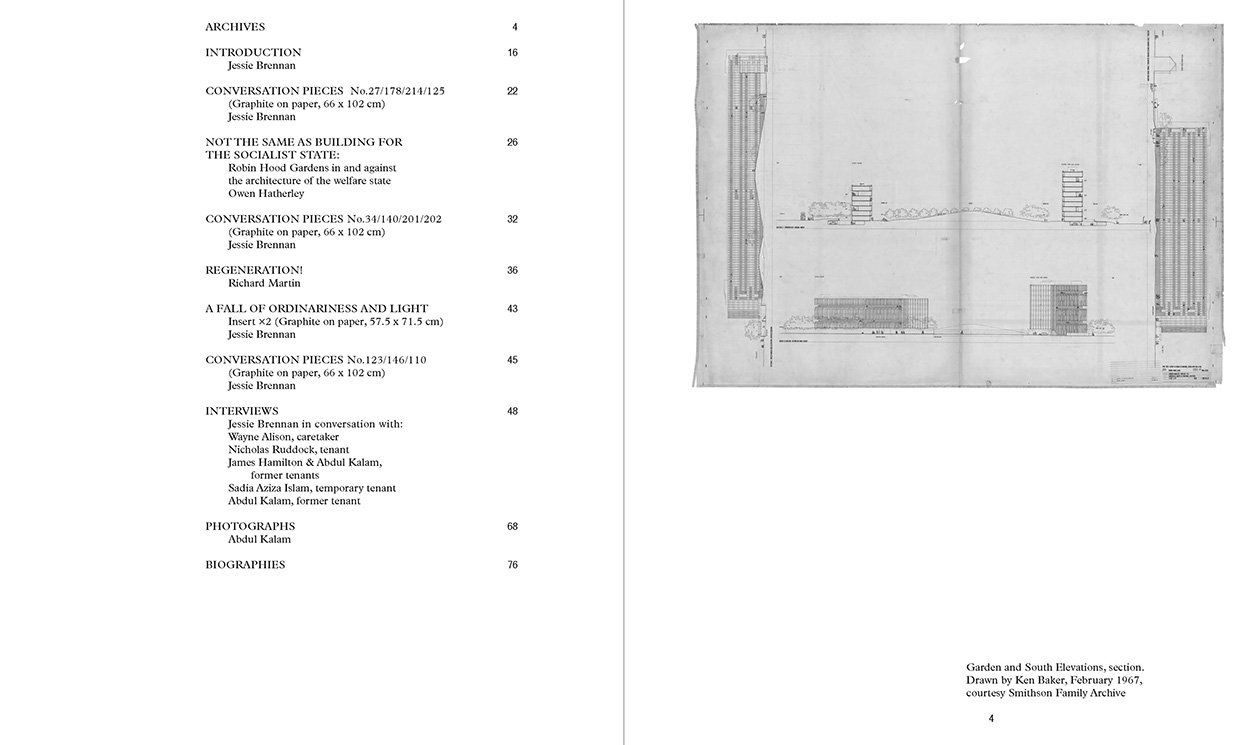
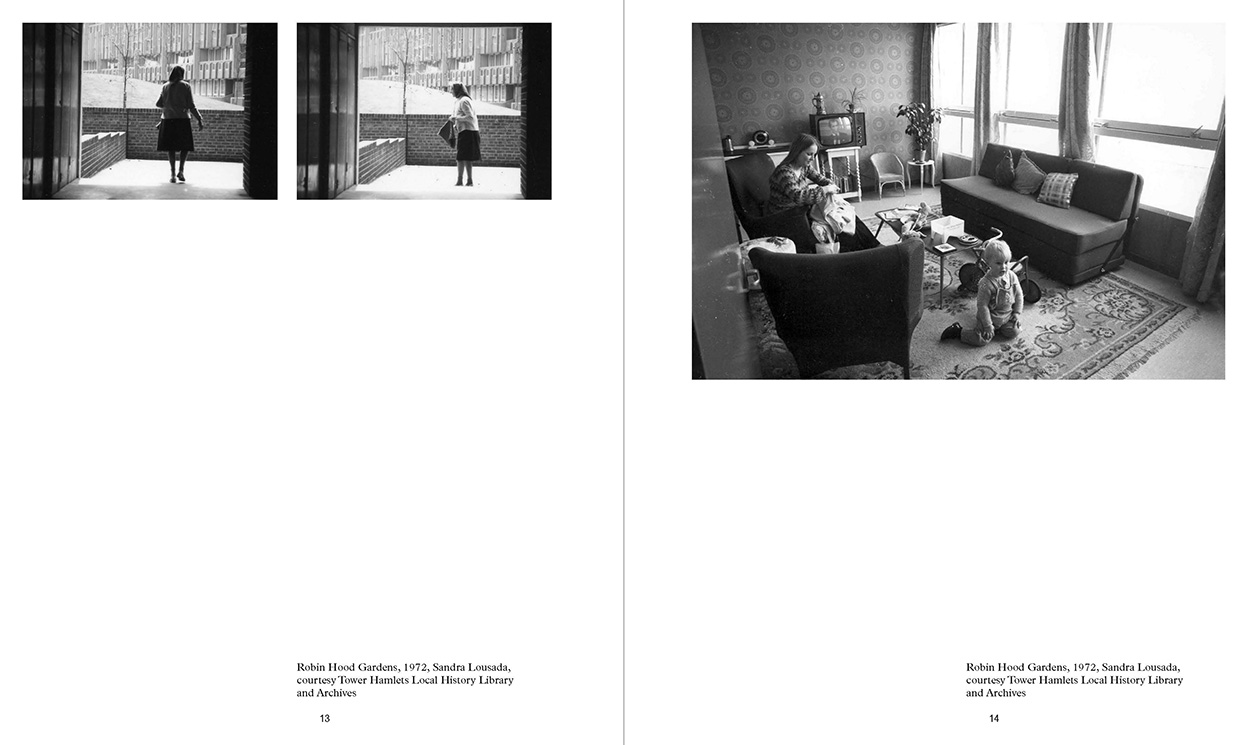
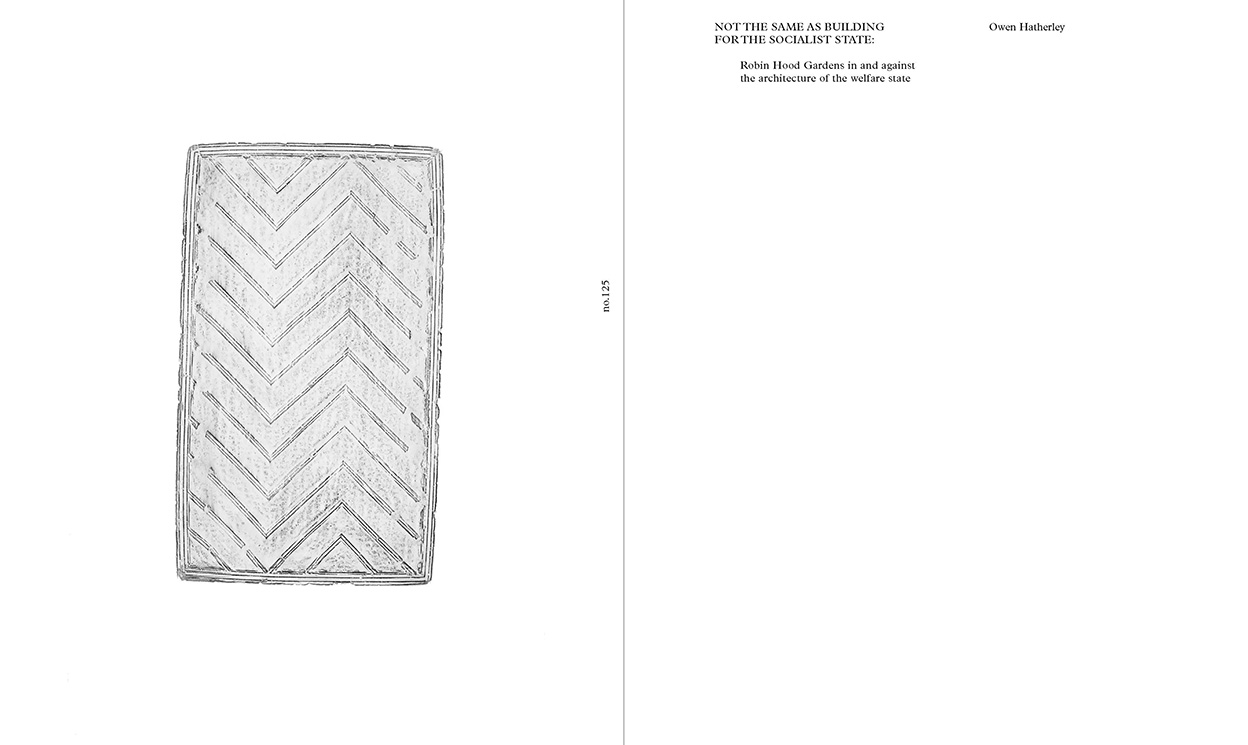
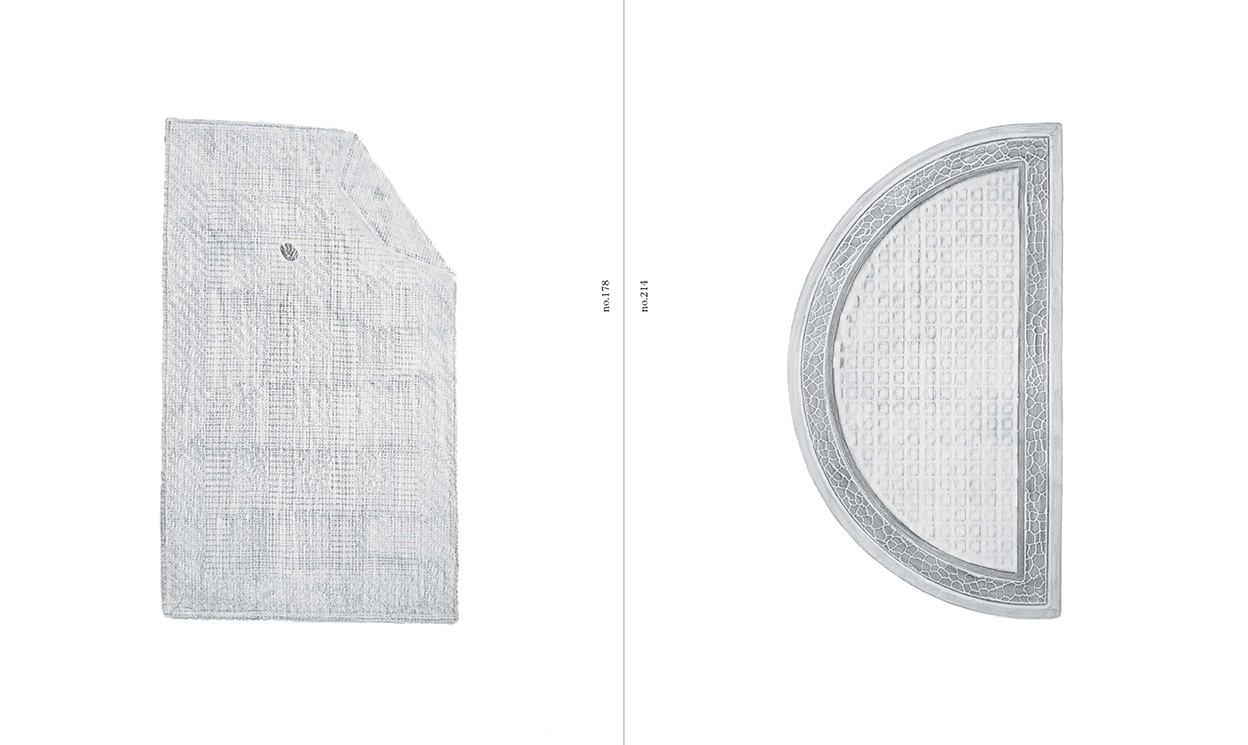
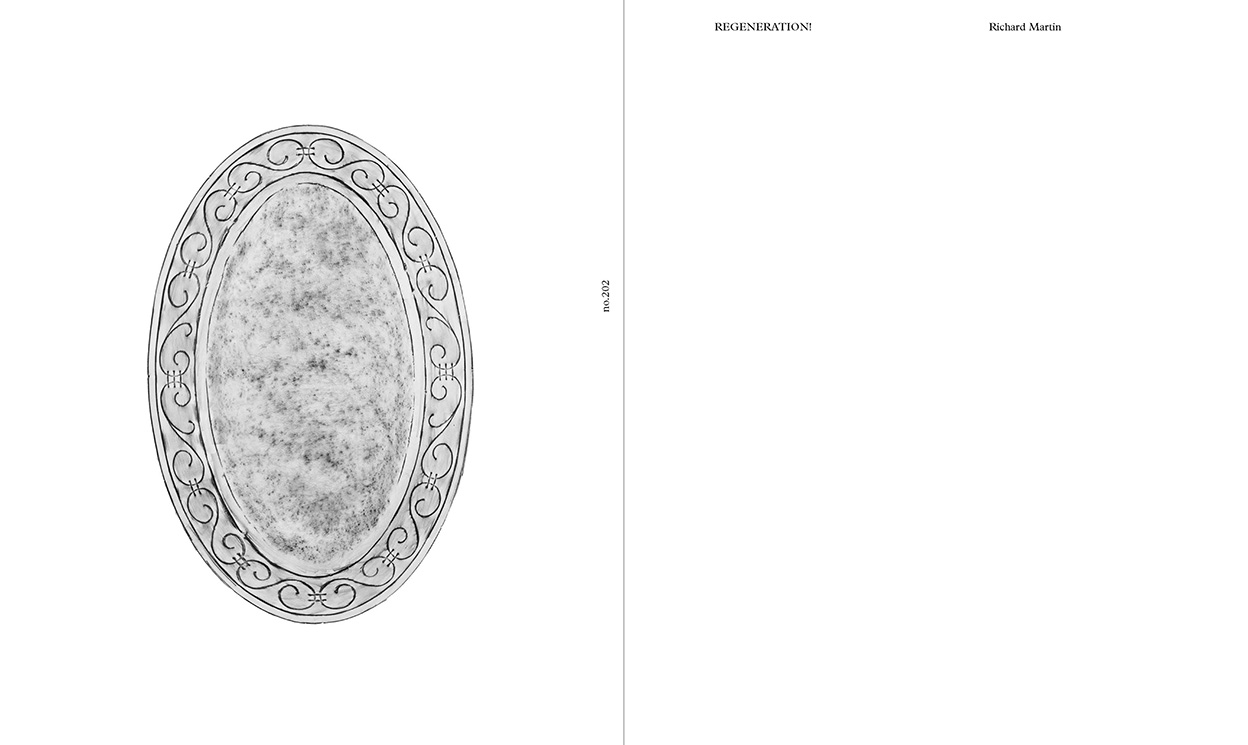

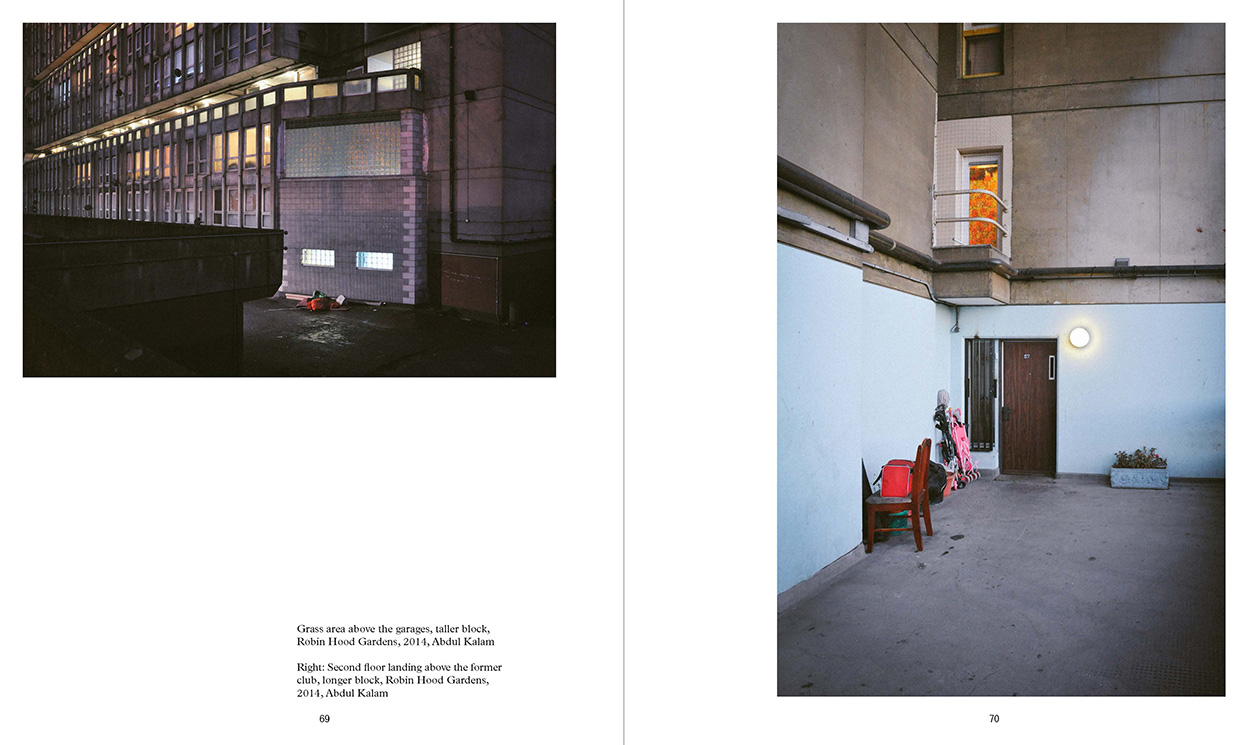
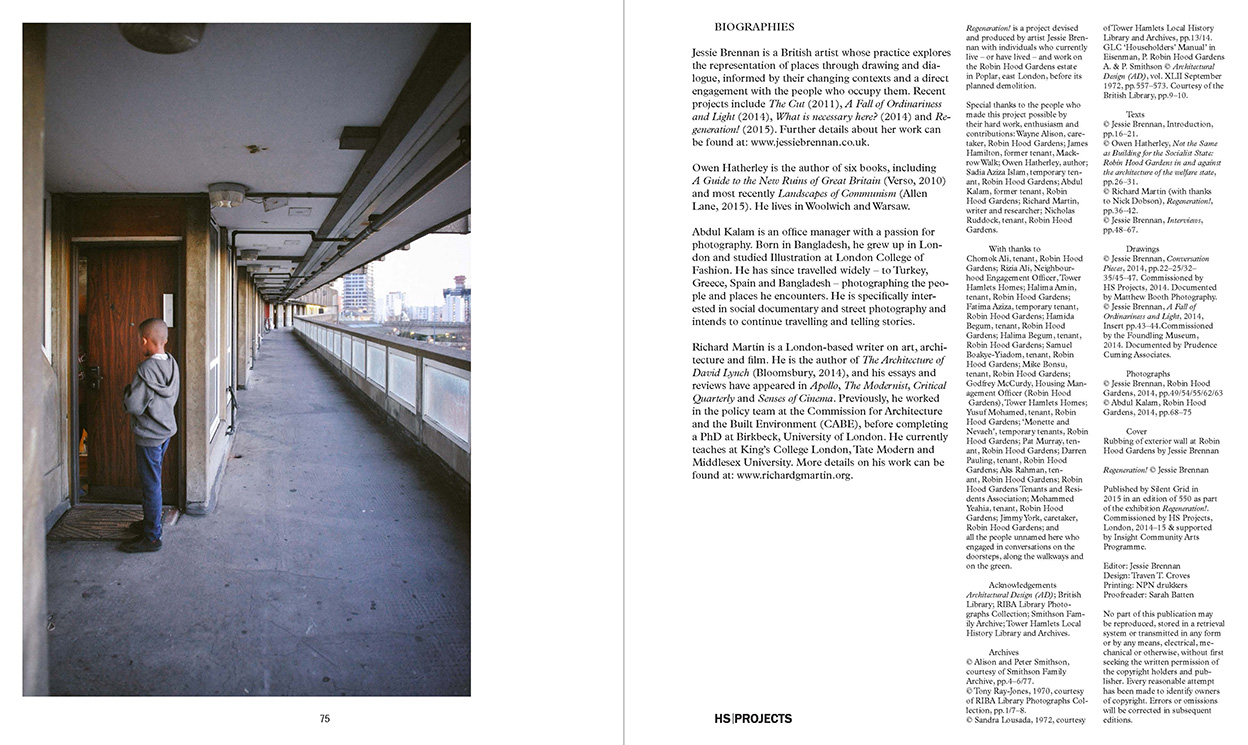
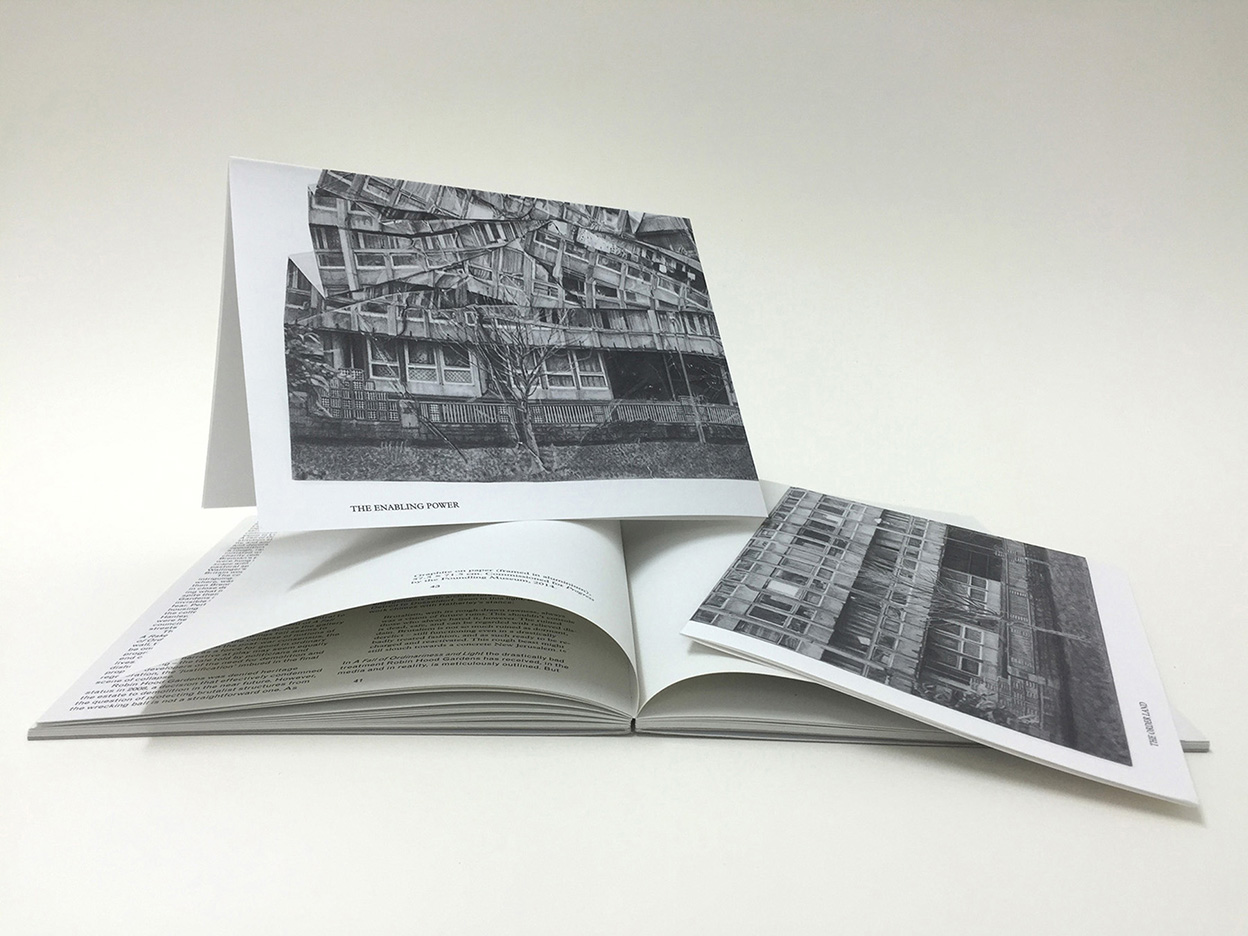
Regeneration! brings together plans and images from several archives, two essays, two series of drawings, personal experiences of long- and short-term tenants and a caretaker in the form of interviews, and a series of photographs by former tenant Abdul Kalam. The text by Owen Hatherley charts the political decisions that led to the rise and fall of Robin Hood Gardens and their wider implications for social democracy. Richard Martin’s essay contextualises the project through an analysis of Jessie's artwork A Fall of Ordinariness and Light and proposes a broader set of questions around the politics of regeneration.
Contributing authors: Owen Hatherley and Richard Martin.
Read the review of Jessie Brennan's Regeneration!, by Oli Mould for Antipode: A Radical Journal of Geography.
“[Brennan] has crafted this set of evocative essays, sketches, photographs, and interviews into a wonderfully tactile artefact, one that captures the political dimensions of Robin Hood Gardens’ brutalist architecture. […] Much like brutalist buildings themselves invite the user/inhabitant to interact with it on multiple levels (socially, personally, psychologically, affectively), Brennan has produced a literary-cum-artistic artefact that reproduces the ethical triumvirate of brutalism as articulated by Banham all those years ago. […] Former residents and the caretaker have been given the opportunity to tell their own stories of life at Robin Hood Gardens, how it changed over time, and what the current demolition plans mean more broadly for London, gentrification, and urban capitalism. […]
[T]hrough the relatively simple medium of pencil drawings, Brennan has articulated the inhabitation of the monumental. […] To label Regeneration! a book would be a disservice to its artistic and material qualities. Brennan has curated a collection of texts, drawings, conversations, photos, and artefacts that emanate the brutalist ethics of Robin Hood Gardens so powerfully.”